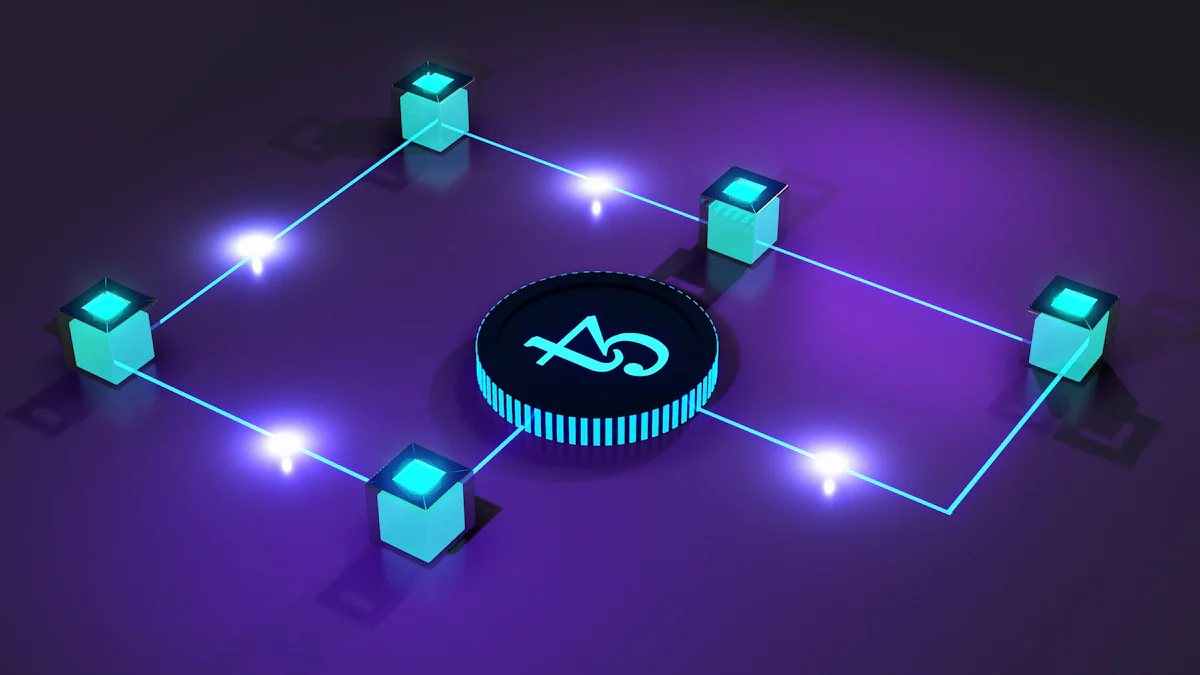Understanding the Rise of Decentralized Applications and Insurance in P2P Networks

Decentralized Technologies
The Evolution of Decentralization
The emergence of decentralized applications (DApps) and insurance within peer-to-peer (P2P) networks has been driven by the revolutionary advancements in blockchain technology, smart contracts, and decentralized identity verification. These technologies have paved the way for a new era of distributed systems, offering unprecedented levels of transparency, security, and efficiency. The integration of these decentralized solutions has significantly transformed traditional centralized models, ushering in a new paradigm of trust and reliability in various sectors, including insurance and financial services.
Advancements in P2P Networks
Blockchain Technology
Blockchain technology has fundamentally transformed the landscape of peer-to-peer networks. By leveraging a decentralized and distributed network, blockchain ensures the integrity and security of transactions within P2P networks. The transparent nature of blockchain allows all network participants to have visibility into the transaction history, thereby enhancing trust and accountability. Additionally, the decentralized nature of blockchain technology eliminates the need for a central authority, promoting a more democratic and inclusive system for P2P interactions.
Smart Contracts
Smart contracts play a pivotal role in automating processes within P2P networks. These self-executing contracts are encoded with predefined rules and conditions, enabling seamless and secure execution of agreements without the involvement of intermediaries. Through the use of smart contracts, P2P transactions are streamlined, reducing the potential for disputes and ensuring that all parties involved adhere to their commitments. This advancement not only enhances the efficiency of P2P networks but also contributes to building trust among participants.
Innovations in Insurance
Decentralized Insurance
The concept of decentralized insurance represents a significant advancement in the insurance sector, leveraging the consensus mechanisms of blockchain technology to revolutionize traditional insurance models. By harnessing the transparent and secure nature of blockchain, decentralized insurance introduces a new level of trust and reliability in risk pooling and coverage processes. Through decentralized platforms, individuals can participate in peer-to-peer insurance arrangements, eliminating the need for intermediaries and ensuring that the entire process is governed by smart contracts and consensus algorithms. This innovation not only enhances the efficiency of insurance operations but also fosters a greater sense of security and transparency for all parties involved.
Blockchain Identity Verification
In the realm of insurance, blockchain-based identity verification systems play a crucial role in enhancing security and trust. These systems provide a tamper-proof method for verifying the identities of policyholders, minimizing the risks associated with identity fraud and ensuring that only legitimate participants are part of the insurance network. By integrating decentralized identity verification, insurance processes become more robust and reliable, ultimately contributing to a more secure environment for managing coverage and protection.
Disruption in Insurance Sector
Reshaping Traditional Models
The integration of decentralized technologies is poised to reshape traditional insurance models, marking a departure from centralized and hierarchical structures. By embracing decentralized approaches, the insurance sector is undergoing a fundamental shift towards more distributed and inclusive frameworks. These innovations introduce unprecedented levels of transparency and reliability, challenging the conventional norms that have long defined the industry. The adoption of uncentralized systems not only redefines the operational dynamics of insurance but also fosters a culture of collaboration and shared responsibility among participants. As a result, traditional models are being reimagined to accommodate the transformative potential of dispersed technologies, paving the way for a more equitable and accessible insurance landscape.
Enhancing Trust in P2P Networks
The convergence of decentralized technologies with insurance serves as a catalyst for enhancing trust within peer-to-peer (P2P) networks. By leveraging decentralized solutions, P2P interactions benefit from enhanced security protocols and streamlined processes, fostering an environment of mutual trust and accountability. This synergy offers innovative solutions for risk management and coverage within P2P networks, bolstering confidence among participants and reinforcing the foundations of collaborative risk-sharing practices. The seamless integration of distributed technologies elevates the level of trust within P2P networks, positioning them as reliable platforms for navigating insurance-related transactions in a secure and efficient manner.
Embracing Decentralized Solutions
Incorporating decentralized applications and insurance into peer-to-peer (P2P) networks offers forward-thinking solutions for managing risk and establishing trust within decentralized systems. By embracing these distributed technologies, the future of risk management and trust in decentralized systems is being reshaped, presenting innovative approaches to addressing the evolving needs of participants in P2P networks. The integration of uncentralized solutions fosters a more inclusive and transparent environment, paving the way for a robust and reliable framework for managing transactions and interactions within decentralized systems.
